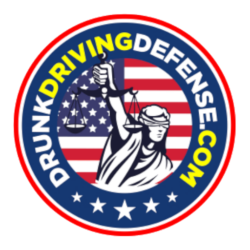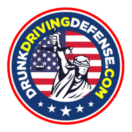A motion for a new DUI bench trial is based on a guilty verdict that is contrary to the evidence, or because the principles of justice and equity are strongly and decidedly against the weight of the evidence.
It is more common for a motion for a new trial to be sought by the defense in a jury trial. In some cases, a motion for a new trial will be granted by a judge who finds that the decision of the jury goes so strongly against the evidence that it would be unfair to not grant a new trial.
Because it is the judge in a bench trial who makes the decision of guilt based on the evidence presented at trial, it is unlikely to believe that the same judge would change his or her mind. It may happen more often if new police evidence is discovered that was unavailable or unreachable prior to the trial. Another possible avenue for your DUI attorney to pursue is to try to convince the trial judge that some important or critical evidentiary ruling that he or she made was clearly wrong and would likely be reversed if appealed to a higher court. What happens at a DUI bench trial will be closely reviewed by a higher court.
One additional reason for requesting a motion for a new trial after a non-jury finding of guilt could be that your criminal attorney (or a new attorney handling this motion) may raise the issue of your trial attorney’s ineffective assistance of counsel during the original trial.
In many jurisdictions, such issues must be first raised by motion for a new trial. Many more opportunities for appeal exist in a jury trial than in a bench trial. For a DUI conviction in a bench trial to be reversed, the trial judge has to have made an error admitting evidence at trial that should not have been admitted. Of course, if you win the trial, the State cannot appeal.
What is a supersedeas bond and how can it help me?
It is possible to apply for a supersedeas bond following a bench trial. When you request a court for this type of order, you are asking that your punishment be “held off” until your appeal has been considered and ruled upon by the appellate court.
Most states have such procedures in misdemeanor cases, either as a matter of right or as a discretionary matter, with any “abuse of discretion” by the trial judge being subject to an immediate appeal. In unusual situations, your attorney may need to ask for involvement by an appeals court.
Such a bond is typically a matter of right if the trial was in an inferior court where no jury trial was available, such as a municipal court. The same principle should apply in your state if your state legislation permits (or authorizes) supersedeas bonds in misdemeanor DUI-DWI cases. Be aware that DUI felony convictions will not have the same “automatic” avenue of appeal while holding off the punishment until your appeal is completed.
No rule of thumb applies here. In some cases, you may need to testify to explain some factual issue. Your attorney may have decided on a bench trial because some inflammatory issue may be exposed by the evidence. For example, if you made a racial comment to the officer in a moment of anger or rage over your arrest. Jurors may convict you based on your bad behavior, while most judges would not let such matters unduly sway them.
As discussed above, if you have a bench rather than a jury trial, the agreement with your attorney may provide for a lesser fee. However, top DUI-DWI trial lawyers may limit their cases to a fixed number of clients, and ALL cases are handled for a fixed fee.
No experienced and dedicated trial lawyer will opt for a bench trial unless he or she is convinced that the bench trial offers a better chance for victory.
Further Reading
To learn more about DUI bench trials, take a look at some of our in-depth articles on the subject below:

